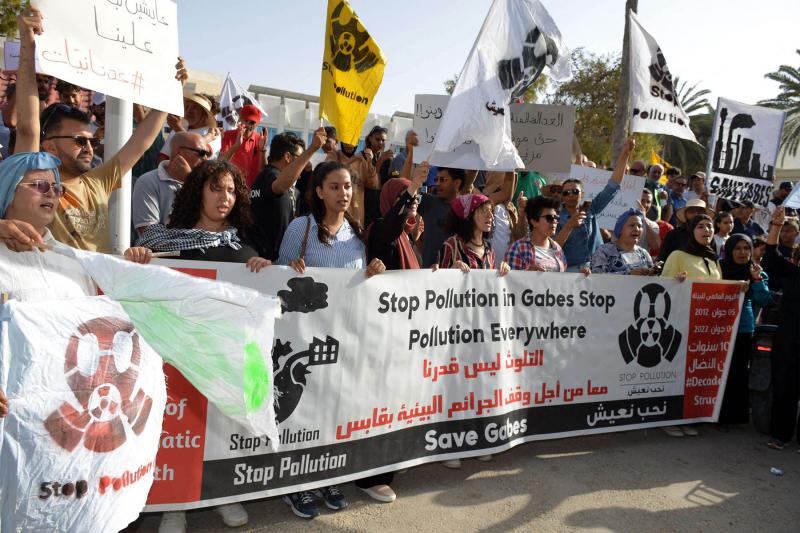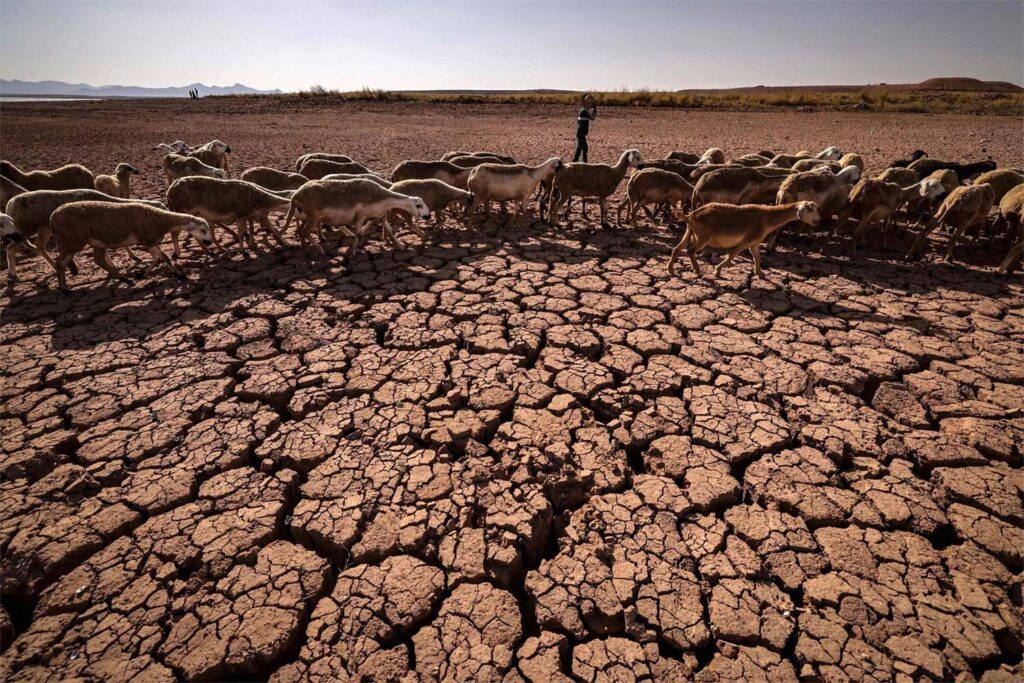
Hundreds of protesters gathered Thursday outside a Gabes court, demanding the suspension of a nearby phosphate factory accused of severe pollution.
Locals have staged weekly rallies in the southern coastal city, blaming the plant for rising gas poisonings and other health crises.
“We’re angry with what’s happening in Gabes,” said protester Ridha Moussa, highlighting cancers, bone fragility, and respiratory problems among residents.
Moussa warned the community is losing vital agriculture and marine resources, with livelihoods and local ecosystems steadily deteriorating.
The court hearing, examining a complaint by the local bar association, was adjourned until next Thursday, lawyers confirmed.
“Today we presented evidence proving this is a crime against our city,” said Mounir Adouni, head of the bar association.
Adouni emphasised urgency, citing imminent danger to children’s lives and hospitals overwhelmed by pollution-related illnesses.
A July audit for the African Development Bank found the factory emitting sulphur, nitrogen, and fluorine, reporting “major non-compliance” with environmental standards.
Protester Mohamed Amairi urged the court to end “this environmental crime” that he says has persisted for over five decades.
Lawyers added a separate December hearing will address dismantling the factory’s most polluting units entirely.
The facility, producing fertilisers from phosphate, has reportedly increased toxic gas and radioactive waste emissions into the sea in recent years.
Authorities previously promised a gradual shutdown in 2017 but announced plans to expand production earlier this year, defying local opposition.
President Kais Saied has championed the phosphate sector as vital for Tunisia’s economy, aiming to quadruple output by 2030 amid rising global fertiliser prices.
The clash in Gabes reflects a broader tension between economic ambitions and urgent environmental health concerns, as communities seek legal protection from industrial harm.




